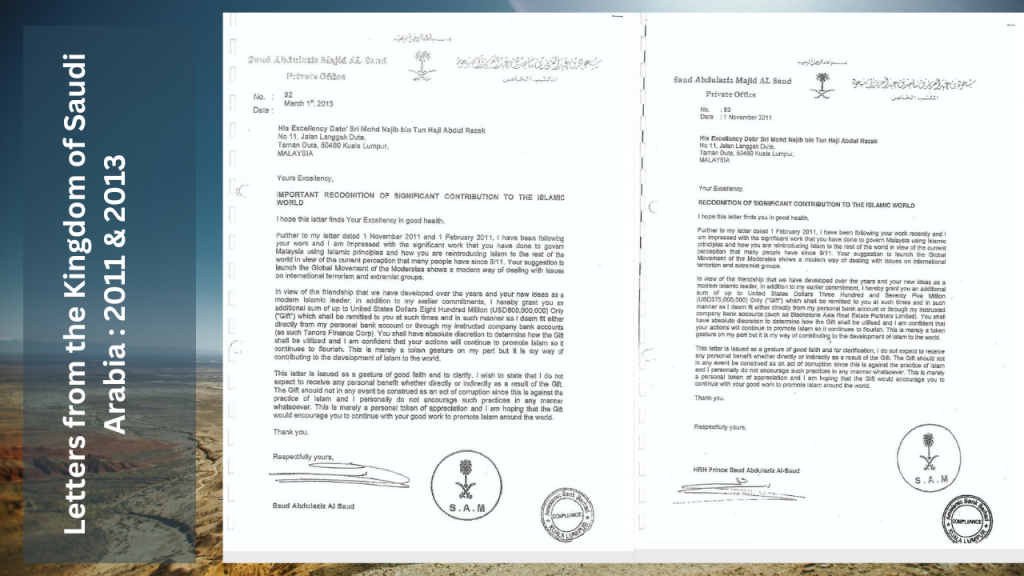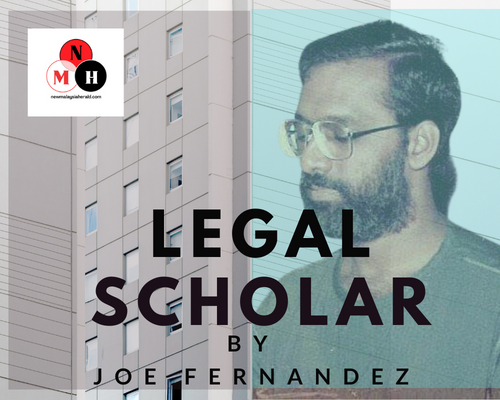There’s grave cause for public concern on reported 19 problem areas in Tommy Thomas’ memoirs, “My Story: Justice in the Wilderness” on law!
It may be touch and go on Fri 30 Sept 2022 when the Cabinet decides whether to make public the contents of a Task Force Report on former Attorney General Tommy Thomas’ controversial memoirs, “My Story: Justice in the Wilderness”. The Task Force has reportedly found, from the Memoirs, 19 areas of concern on law in Malaysia. (Refer to link below).
It’s not known whether Thomas will be dragged to court for alleged offences that he may have committed by including the 19 areas in his memoirs. Law Minister Wan Junaidi Tuanku Jaafar and Prime Minister Ismail Sabri have both publicly pledged, after the Task Force was announced, that Thomas might face the music in court if he had committed any offences. This may not be related to any alleged abuse of power under Article 145 which governs the role of the AG.
For starters, based on the Memoirs, Chief Justice Maimun may not have been properly appointed. The AG and Prime Minister have no say on the CJ. The Judicial Appointments Commission (JAC) makes the recommendations for Agong who has the final say and makes the appointments. Apparently, CJ Maimun’s appointment didn’t go through the JAC because of Thomas and Mahathir.
It’s more than likely that the Task Force Report may be placed under the Official Secrets Act 1972 (OSA). There are precedents for this. It includes the Cabinet Committee findings on the Malaysia Agreement 1963 (MA’63) during the short-lived Mahathir Administration after GE14 on Wed 9 May 2018. I stand corrected on this.
The government has prerogative and discretionary powers on the Task Force Report. The government can also set up a Select Cabinet Committee on the Task Force Report. The Committee, if push comes to shove, may recommend a Royal Commission of Inquiry (RCI) on the 19 areas.
Political Cases
There’s a case for Prime Minister Ismail Sabri to sack AG Idrus Harun and appoint his own Attorney General. Then, the new AG can be directed to withdraw all political cases filed by the two previous governments.
Ironically, during Thomas’ tenure as AG, many political cases were filed in court. Parameters like the Basic Features Doctrine, Doctrine of Separation of Powers and the prerogative and discretionary powers of government and management, i.e. including previous government, were ignored.
Former Prime Minister Najib Abdul Razak was dragged to court on a purported RM42m deposit in personal account/s from SRC International — the RM42m wasn’t from SRC but political donation from another company after getting a reported RM140m loan from MayBank — and jailed on Tues 23 Aug 2022 without the conviction being perfected in law. Najib allegedly committed abuse of power, conflict of interest and criminal breach of trust. High Court Judge Nazlan refused to accept as proof a letter from Saudi Arabia on US$100m donation (see proof of copy of letters and proof of transaction to Najib’s account below.) The court should verify the letter, not dismiss it outright.


Najib stands indemnified, has immunity, implicit Pardon for “acts in office” under the Basic Features Doctrine i.e. aspects of the Constitution which cannot be amended by Parliament, lest the Constitution be seen as going against itself. For example, to cite a few, Article 5, 8, 10, 11, 13, 39 and 63 cannot be amended. That proves the Basic Features Doctrine exists, is inherent, and permeates throughout the Constitution. Malaysia, having a written/codified Constitution — unlike the United Kingdom — is governed by constitutional supremacy, not by parliamentary sovereignty. Parliament’s sovereignty last for five years. No Parliament can bind a future Parliament or be bound by a previous Parliament.
The Doctrine of Separation of Powers also presides. No court will go into the prerogative and discretionary powers of government and management — it has no jurisdiction — “unless abuse can be proven”. The Raja Azlan Shah and Asian Arbitration case laws on abuse of power cannot be read in isolation. They have to be read together with the Basic Features Doctrine and the Doctrine of Separation of Powers. The court has no jurisdiction on the SRC case i.e. it was not for judicial intervention and resolution.
Letter of the Law
Based on what transpired in court from even before Mon 15 Aug 2022 and until Tues 23 Aug 2022, Chief Justice Maimun and the rest of the 5-Man Panel acted with impunity. They didn’t even pay lipservice to the rule of law. Instead, they fell back solely on the letter of the law. It wasn’t law at all but dictatorship. There was no democracy, no legitimacy.
Again, CJ Maimun had no locus standi and jurisdiction on the SRC case. Based on the memoirs, i.e. about not going through the JAC, she may not have been properly appointed. Agong was misled by Mahathir and Thomas. The appointment does not exist.
Political donation may have been brought to court as corruption and corruption conveniently labelled as political donation. It seems that there’s a thin line between political donation and corruption in the MACC’s (Malaysian Anti Corruption Commission) dictionary.
Withdrawal of Several Cases after Tommy Thomas’ Exit
After Thomas as AG, several corruption cases were withdrawn on the basis that they were actually political donation. There’s no law in Malaysia on political donation. There’s no law against it and no law discouraging the practice.
Forty six corruption charges against former Sabah Chief Minister, Musa Aman, were withdrawn by AG Idrus Harun on Mon 8 June 2020 after the accused claimed “with a straight face” that the RM380m he collected — allegedly from timber contracts — were political donation. The AG and the court did not verify Musa’s claim by doing due diligence and forensic accounting on the money trail.
Adding Insult To Injury
In adding insult to injury, in law, the Inland Revenue Board (IRB) did not go after Musa for taxes due on the RM380m — and also non-declaration, tax evasion, fines for late payment — and the MACC and Bank Negara did not freeze, seize and forfeit the RM380m as proof of being party to illegalities including money laundering activities.
Former Umno Minister Tengku Adnan Tengku Mansor was freed of corruption charges involving RM2m. It was considered political donation. In a contradiction in terms, the businessman who gave the RM2m was earlier jailed on bribery and corruption charges. Based on the Tengku Adnan case, the businessman can sue the government for wrongful jailing and fine.
Umno MP Ahmad Maslan was freed of corruption charges involving RM2m. It was considered political donation. The IRB froze, seized and forfeited the RM2m as compounded fine. Yet, the IRB did not freeze, seize and forfeit Tengku Adnan’s RM2m.
Najib’s wife, Rosmah, found herself going from potential defence witness to being the accused in the allegedly bogus solar power project in Sarawak. Rizal Mansor, no relation but the accused for two years as Rosmah’s Aide, became Prosecution witness after plea bargaining. Plea bargaining does not exist under the criminal justice system under our adversarial system of justice. The company involved in the bogus contract also became Prosecution witness after plea bargaining.
Unscrupulous Ad Hoc Prosecutor Gopal Sri Ram, in a clear cut case of abuse of power, claimed with a furious face during a media briefing that Prosecution has discretion in winning a conviction, implying by hook or by crook. That’s sheer evil in court!
Suspended Judge
Suspended Judge Hamid Sultan Abu Backer‘s discoveries on bogus contracts has bearing on Rosmah’s case. More on the judge shortly.
Under the Malaysian Contract Law, the civil court will first look at whether a contract is valid in law. If valid, the court will not/cannot compel compliance. It can only offer compensation, if there’s no counter claim, to the party claiming breach. The claimant has to quantify the compensation at the asst registrar’s office. The court will decide the final quantum. The claimant, if unhappy, can Appeal to the superior court.
If there’s counter-claim, the court will first look at it.
If the contract isn’t valid in law, and there are elements of cheating and fraud, it’s a matter for the police, Prosecution and the criminal court.
Anomalies
AG Thomas isn’t the first person to find anomalies on law in Malaysia.
Two examples suffice . . . Chief Justice Richard Malanjum, in a farewell address, argued that there’s greater emphasis on the spirit of the law in the rule of law, albeit read with the letter of the law. He cautioned the lawyers and court that the letter of the law, by itself, isn’t law at all. He was particularly concerned by lawyers and court belabouring in the delusion that there’s no spirit of the law in the rule of law but only the letter of the law.
Ironically, the Federal Court by majority decision on Tues 1 Sept 2020 found that the Sabah government was unconstitutionally formed on Sat 12 May 2018 when the Musa Aman government, set up on Thurs 10 May 2018, was overthrown by a ragtag bunch including PTI (pendatang tanpa izin or illegal immigrants) with dubious documents. Malanjum reportedly advised on the formation of the unconstitutional government allegedly in violation of the rule of law.
Malanjum appears to be a case of “cakap bukan serupa bikin” (saying one thing, doing something else), “indah khabar dari rupa” (the news is beautiful, the reality something else), and “hangat hangat tahi ayam” (getting hot over something, but cools very fast like chicken sxit).
Suspended Judge Hamid Sultan Abu Backer remains another case in point. He has complained in Affidavits and elsewhere about corruption among judges presiding on government being found in breach on contracts. The judge discovered that civil servants, companies and certain judges were in cahoots on the bogus contracts involving the government.
Law Education
There’s a case, in reiterating the 19 areas, for reforms in law education. If these reforms were brought in, many problems in court, the Attorney General’s Chambers (AGC) and the judiciary can be minimised. Malaysia is light years behind Commonwealth jurisdictions in law.
Malaysia lacks brilliant lawyers. This can be seen in the court not finding any novel developments to declare as novel development in law. It’s the work of lawyers to look for the law and point it out. It’s the work of the court to find the law and declare it. Bundles of authorities citing case law may not be applicable when the greater emphasis, in the rule of law, is on the spirit of the law.
The court can only rule on what’s placed before it. Instead, corruption having crept in, the court invariably acts with impunity, not even paying lipservice to the rule of law, but falls back on obiter dictum — judge’s opinion in court — and the letter of the law, by itself, as law. It’s not law at all but dictatorship. There’s no democracy and no legitimacy.
Obiter dictum, in law, has no place in court Ruling. – NMH

About the writer: Longtime Borneo watcher Joe Fernandez keeps a keen eye on Malaysia as a legal scholar (jurist). He was formerly Chief Editor of Sabah Times. He is not to be mistaken for a namesake previously with Daily Express. References to his blog articles can be found here.
The points expressed in this article are that of the writer and do not necessarily reflect the stand of NMH.

Longtime Borneo watcher Joe Fernandez has been writing for many years on both sides of the Southeast Asia Sea. He should not be mistaken for a namesake formerly with the Daily Express in Kota Kinabalu. JF keeps a Blog under FernzTheGreat on the nature of human relationships.
Facebook Comments